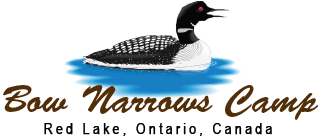One reason the fishing is so good!
Many years ago, anglers at Bow Narrows Camp decided to ensure the trophy northern pike and walleye fishery on Red Lake, Ontario, would be enjoyed by future generations. They began practicing smart conservation fishing techniques and the result has been spectacular.
Each year the average and largest fish size increases and so do the total numbers.
What are we doing? Mostly it comes down to three things:
- We don’t keep big fish: Walleyes over 18” and Northern Pike over 27” are returned to the lake.
- We voluntarily keep fewer fish to take home.
- We’re careful not to harm the fish we release.
All of the big fish are released unharmed, released to spread their genes for large size and fast growth.
With great respect for nature’s wonders, we take our stewardship of the lake and land seriously. And our guests are an impressive part of this stewardship as well. When the large fish are released, you or your son or daughter can catch them again, only next time they’ll be even larger!
Bow Narrows Camp provides complimentary Conservation Fishing Licenses to all our guests.
These entitle you to 2 northern pike and 2 walleye a day and in possession instead of the 4 pike and 4 walleye of the regular license. You can also keep 6 whitefish on the conservation license and 12 on the regular license.
We don’t force you to use the conservation licenses, but nearly all of our guests prefer the conservation method now and the number grows annually.
We also catch very large lake trout but they must all be released as the trout fishery is catch-and-release only here.
Ultimately, we have a choice when it comes to our fishing experience. We can be thrilled by the kind of fishing most people only dream about or we can take home full coolers of fish for awhile and then complain for the rest of our lives how good the fishing used to be.
Dan and Brenda Baughman, the previous Bow Narrows Camp owners, were given the 2004 Conservationist of the Year Award by Nature and Outdoor Tourism Ontario.
We whole-heartedly carry on their conservation work.




